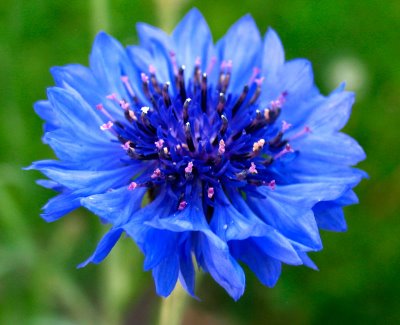

Rashi - Samchara - Bhava - Graha
Ratna - Nakshatra - Amsha - Varga
Shani occupies 4th-from-Chandra
- Traditional Jyotishavidya Ratna for Shani
- Serious Shanaicarya reaches maturity = age 36
- [energizing-identifying lagnesha for Makara indriya-lagna]
- [energizing-identifying lagnesha for Kumbha indriya-lagna]
- BPHS Vimshottari MahaDasha of Shani
-
BP Lama commentary Shani Mahadasha
- [Shani in classroom-1]
- [Shani in classroom-2]
- [Shani in classroom-3]
- [Shani in classroom-4]
- [Shani in classroom-5]
- [Shani in classroom-6]
- [Shani in classroom-7] = [dikbala]
- [Shani in classroom-8]
- [Shani in classroom-9]
- [Shani in classroom-10] = [svabhava]
- [Shani in classroom-11] = [svabhava]
- [Shani in classroom-12]
- [Shani-Mesha] = [nīcha]
- [Shani-Urisha]
- [Shani-Mithuna]
- [Shani-Karkata]
- [Shani-Simha]
- [Shani-Kanya]
- [Shani-Tula] = [uchcha]
- [Shani-Vṛścika]
- [Shani-Dhanus]
- [Shani-Makara-Draco] = [svakshetra]
- [Shani-Kumbha] = [svakshetra] + [mulatrikona if within 0-20 deg]
- [Shani-Meena]
- [Shani-yuti-Surya]
- [Shani-yuti-Chandra]
- [Shani-yuti-Mangala]
- [Shani-yuti-Budha]
- [Shani-yuti-Guru]
- [Shani-yuti-Shukra]
- [Shani-yuti-Rahu]
- [Shani-yuti-Ketu]

Marble Caves of Patagonia, Chile

OM sham shanaishcharaye samah
शनि śani
Professor Shani
Sauri - Sauron
Shanicarya - Sanisvaraya
Shanaidev Bhagavan
अर्कपुत्र arka-putra = son of Sun
नीलवसन nīla-vasana = dark-blue visage
काल kāla = kronos, time
occupies
बन्धुस्थान bandhu-sthāna = place of belonging, staying bound
सुखदाय su-kha-dāya = easy, comfortable area
रसातल rasā-tala = earth, ground, subterranean lower realms
गृहस्थान griha-sthāna = grave, house-of-earth, burial, lower-world
Saturan - Sauran - Sætern - Saturnus
the seventh one
Satu = Saturday
kevan - kaiwan - kiyyun - kaiamanu - khima
kρονος - kronos
Ninurta - Anu - El - Eli -
"The Old Sun // the best Sun"
resides in
the fourth house
genitor - domus
Stuck in a rut.
Rigid roots.
House arrest.
Old folks. Sighr.

Mount Rainier, Cascade Range, summertime in western Washington State
" Old age is like a plane flying through a storm. Once you' re aboard, there's nothing you can do. You can' t stop the plane, you can' t stop the storm, you can' t stop time. So one might as well accept it calmly, wisely."
~~ Israel-PM 1898-1978 Golda Meir
(Golda Meir was chosen as Prime Minister of Israel in 1969, already living with lymphoma, at her age 70. She served until her age 75, and died age 78)
Matters of kendra bhava-4 = stable and improve with applied discipline of formal schooling
-
easier results from uttama-amsha, svakshetra, or rashi of Shukra
-
Frugal but functional Vehicle s
Conforming to the lowest common denominator
[akashic memory patterning] of mother and patriotism: shelter, protection, homes, farms, schools, police, vehicles;
defense of the land and continuity of the rhythmic, habitual routines, folkways, ancient customs, and established cultural norms of one's people
resistance to parents and schooling + obligation to protect the root culture
hard work and steady duties upon the land; farming, home-chores, policing
profound sense of responsibility for matters of the home and homeland, yet frustration with duties and often insufficient resources in the household

Ancient rocky tombs hewn into the mountainside
in the village of Myra, old district of Lycia in modern Turkia.

EXAMPLES
[Shani-Mesha] = stomach pressure + resistance to parents + must protect the home culture
= [nīcha]
[energizing-identifying lagnesha for Makara - Draco indriya-lagna] [collecting-preserving dhana-pati for Makara - Draco indriya-lagna]
-
check Kuja + Kuja drishti to source Shani's pushy rigidity, instinctive survivalism, primitive laws
[identified lagnesha with rigidly physical anchoring routines] [Maintains the conventional seasonal contests] [limited household fire and fuel]
[obligation to care bodily for elderly parents] [responsible for maintaining storytelling dhana-pati continuity with older cultural settlers] [necessary crop-storage dhana-pati from restricted dry farming]
[must establish minimal home vitality] [orderly childhood household resists excesses of innovation] [staunch protection of local warriors]
[cautiously competitive hardworking mother may be strict gymnastics educator, home-based pioneer gardener, disciplined forward-pushing guardian]
-
Clairsentient 1939-1994 social justice Paul Solomon [collaborative-managing Aśvini-3] + [Aśvini-Shani-yuti-Ketu-Aśvini] ++ nīcha-Shani-4 parivartamsha Kuja-1-uchcha] + [Shani mutual-drishti Kuja]
[Shani-Urisha] = stomach pressure + resistance to parents + must protect the home culture
[energizing-identifying lagnesha for Kumbha indriya-lagna] [retreating-contemplative vyaya-pati for Kumbha indriya-lagna]
-
check Shukra + Shukra-drishti to source Shani's entreasuring discipline, evaluating strictures, historical rules
[identified lagnesha with rigidly traditional anchoring routines] [maintains the conventional seasonal narratives] [limited household food storage]
[obligation to provide heritage care for elderly ancestors] [responsible for keeping values continuity with older cultural settlers] [required efforts in livestock and dry farming]
[must establish minimal nourishing home conditions to sustain interior meditation vyaya-pati] [orderly childhood household resists excesses of sense-pleasure] [staunch protection of local historians]
[cautiously collecting hardworking mother may be strict language educator, knowledgeable gardener, disciplined storytelling guardian]
-
300 Combinations 1912-1998 Jyotiṣika B.V. Raman [champion-innovative Rohiṇī-1] = [navamsha Shani-Mesha-nīcha] + [Rohiṇī-Shani-yuti-Chandra-Mriga]
[Shani-Mithuna] = stomach pressure + resistance to parents + must protect the home culture
[gainful-friendly labha-pati for Meena - Antya indriya-lagna] [contemplative-visionary vyaya-pati for Meena - Antya indriya-lagna]
-
check Budha + Budha-bhukti to source Shani's conversational formality, commercial regulation, administrative governance
[profitable labha-pati rigidly mentalized anchoring routines] [maintains the conventional seasonal scripted announcements] [parentally limited household discussion]
[obligation to provide manual care for elderly ancestors] [responsible for conversational continuity with older cultural settlers] [required efforts in collaborative dry farming]
[must establish minimal home scheduling to sustain sleep-and-dreams vyaya-pati] [orderly childhood household resists excesses of casual chat] [staunch protection of local commerce]
[cautiously instructional hardworking mother may be strictly businesslike writer-educator, procedural gardener, disciplined administrative guardian]
[Shani-Karkata] = stomach pressure + resistance to parents + must protect the home culture
[dutiful-hierarchical karmesha for Mesha indriya-lagna] [friendly-gainful vriddhi-pati for Mesha indriya-lagna]
-
check Chandra + Chandra-drishti for Shani's comfortably unyielding, unmovingly established, protective rule-based ordering
[profitable vriddhi-pati rigidly rhythmic anchoring routines] [maintains the conventional seasonal undulating flow] [lawfully limited household defense]
[obligation to provide sheltering care for elderly ancestors] [responsible for habitual continuity with older cultural settlers] [required efforts to irrigate dry farmland]
must establish minimal home routines to sustain public respect karmesha] [orderly childhood household resists excesses of sentimental feeling] [staunch protection of local patriots]
[fisheries use old boats] [cautiously protective hardworking mother may be strict educator of housing or marine-science , cultivating gardener, disciplined stabilizing guardian]
-
POTUS-pair-43 School Libraries 1946- Laura Welch Bush [secretive-discovering Pushya-4] + + [Chandra-11-Kumbha parivartamsha Shani-4-Karkata]
-
Syria-Pres-pair 1975- shopping Asma al-Assad [protective-nationalistic Punarvasu-4] + [Puna-Shani-yuti-Surya-Aśleṣā]
***
-
Starry Messenger 1564-1642 Galileo Galilei [calculating-logistical Pushya-2] + [Pushya-Shani-yuti-Guru-Pushya-uchcha]
-
POTUS-13 Slave Trade Compromise 1800-1874 Millard Fillmore [ideological-optimistic Aśleṣā-1]
-
POTUS-21 Civil Service 1829-1886 Chester A. Arthur [systematic-profitable Aśleṣā-3]
[Shani-Simha] = stomach pressure + resistance to parents + must protect the home culture
[Yogakaraka believing-principled dharmesha for Urisha indriya-lagna] = [Yogakaraka dutiful-executive karmesha for Urisha indriya-lagna]
-
check Surya + Surya-drishti to source Shani's dramatized discipline, displayed restrictions, showcase conventionalism
[believes dharmesha in rigidly ceremonial anchoring routines] [maintains the conventional seasonal celebrations] [lawfully limited household entitlements]
[obligation to provide entertaining care for elderly ancestors] [responsible for continuity of worship pageantry for older cultural settlers] [required efforts to secure rights to dry farmland]
[must establish minimal home displays to sustain public respect karmesha] [orderly childhood household resists excesses of gambling] [staunch protection of local politicians]
[cautiously creative hardworking mother may be strict educator of dramatics or political-science , showy gardener, disciplined demonstrative guardian]
- POTUS-27-pair Cherry Trees 1861-1943 Nellie Herron Taft [protective-patriotic Magha-4]
[Shani-Kanya] = stomach pressure + resistance to parents + must protect the home culture
[mysterious-revealing randhresha for Mithuna indriya-lagna] [philosophical-preaching dharmesha for Mithuna indriya-lagna]
-
check Budha + Budha-drishti to source Shani's dutiful arguments, orderly explanations, materialist logic
[believes dharmesha in rigidly argumentative anchoring routines] [maintains the conventional seasonal ministries of service] [lawfully limited household workers]
[obligation to provide medical care for elderly ancestors] [responsible for grievance continuity with older cultural settlers] [required efforts to labor on dry farmland]
[must establish minimal home cleaning to sustain camouflage randhresha] [orderly childhood household resists excesses of litigious complaint] [staunch protection of local physicians and pharmacists]
[cautious overworked mother may be strict exploited educator, assistive gardener, disciplined helping guardian]
-
NASCAR 1951-2001 motorsports Dale Earnhardt [regulatory Uttaraphalgunī-2]
[Shani-Tula] = stomach pressure + resistance to parents + must protect the home culture
= [uchcha] = [Śaśaka Yoga]
[bargaining-balancing yuvati-pati for Karkata indriya-lagna] [transformative-disguising randresha for Karkata indriya-lagna]
-
check Shukra + Shukra-drishti to source Shani's rigidly harmonizing, fairly adjudicating, reciprocally orderly systems
[necessary partnership yuvati-pati with patriotic revolutionary randresha peers] [rigidly balanced anchoring routines] [maintains the conventional seasonal land-use agreements]
[lawfully limited household arrangements]
[obligation to provide pleasant care for elderly ancestors] [responsible for graciously respectful continuity with older cultural settlers] [requires effort to bargain with farmers]
[must establish minimal domestic equity yuvati-pati to sustain camouflage randhresha] [orderly childhood household resists excess of sweet tastes] [staunch protection of local lawyers and advocates]
[cautious accommodating hardworking mother may be strict but fair educator, bartering gardener, disciplined middleman guardian]
-
Cuba-Dictator 1926-2016 Fidel Castro [publicizing-explaining Viśākha-3] [4, basic infrastructure]
[Shani in Vṛścika] = stomach pressure + resistance to parents + must protect the home culture
[inimical-medicating rogesha for Simha indriya-lagna] [balancing-bargaining yuvati-pati for Simha indriya-lagna]
-
check Kuja + Kuja-drishti to source Shani's forward-driving discipline, penetrating restriction, regulated rejuvenation
[necessary conflict rogesha with secretive peer-partners yuvati-pati] [rigidly disguised anchoring routines] [maintains the conventional seasonal land-use cycles]
[lawfully limited household secrecy]
[obligation to provide surgical care for elderly ancestors] [responsible for evolving respectful continuity with older cultural settlers] [requires effort to change the farmers]
[must establish minimal domestic agreements yuvati-pati to sustain transformative energy] [orderly childhood home resists excess danger] [staunch protection of local healers and surgeons]
[cautiously discovering hardworking mother may be strict masked educator, emerging gardener, disciplined but disagreeable rogesha volatile guardian]
[Shani-Dhanus] = stomach pressure + resistance to parents + must protect the home culture
[political-dramatic vidya-pati for Kanya indriya-lagna] [inimical-medicating rogesha for for Kanya indriya-lagna]
-
check Guru + Guru-drishti to source Shani's principled legalism, doctrinal strictures, theoretical systems
[necessary conflicted rogesha conformance with politicized vidya-pati worldview] [rigidly indoctrinated anchoring routines] [maintains the conventional seasonal land-use guidance]
[lawfully limited household patriarchy]
[obligation to provide uplifting care for elderly ancestors] [responsible for philosophical respectful continuity with older cultural settlers] [requires effort to inspire the farmers]
[must establish minimal domestic teaching to sustain sacred understanding] [orderly childhood home resists excess patronage] [staunch protection of local priests and preachers]
[cautiously believing hardworking mother may be strict but cheerful educator, esperant gardener, disciplined but disagreeable rogesha sermonizing guardian]
-
POTUS-30 Price of Freedom 1872-1933 Calvin Coolidge [secretive-emerging Pūrvāṣāḍhā-4] = [ātmakāraka]
-
USA Civil Rights 1929-1968 Rev. Martin Luther King [originating-inventive Mūla-1] = [navamsha Shani-Mesha-nīcha] + [4, cultural foundations, The Founders, folk rhythms, ritual worship]
-
Turtle Island 1930- poet environmentalist Gary Snyder [analyzing-ministering Pūrvāṣāḍhā-2] ??
[Shani-Makara-Draco] = stomach pressure + resistance to parents + must protect the home culture
= [svakshetra] = Śaśaka Yoga]
[Yogakaraka homebound-securing bandesha for Tulā indriya-lagna] = [Yogakaraka speculative-creative vidya-pati for Tulā indriya-lagna]
[necessary conformance with parents bandesha social-class] [rigidly structured anchoring routines] [maintains the conventional seasonal land-use rules] politicized vidya-pati
[lawfully limited household formalities] [drafty old stone houses] [schooling bandesha maintains social hierarchy]
[conventional pageantry vidya-pati binds the normalized ethnic culture] [obligation to provide dignified care for elderly ancestors] [responsible for respectful continuity with older cultural settlers]
[requires effort to regulate the farmers] [must establish minimal domestic order to sustain institutional legitimacy] [childhood home resists excess stiffness]
[staunch protection of local officials and bureacrats]
[cautiously polite hardworking mother may be strict lawful educator, architectual gardener, disciplined governing guardian]
-
Bello Gallico 100-44 BCE Julius Caesar [dominating-champion Śrāvaṇa-1] = [navamsha Shani-Mesha-nīcha]
[Shani-Kumbha] = stomach pressure + resistance to parents + must protect the home culture
= [svakshetra] = [Śaśaka Yoga] = [mūlatrikoṇa if within 0-20 deg]
[collaborative-communicative sahaja-pati for Vṛścika indriya-lagna] [homebound-anchoring bandesha for Vṛścika indriya-lagna]
[rigidly interconnected anchoring routines bandesha] [Maintains the conventional seasonal distribution grids] [limited property electrification]
[obligation to care systematically for elderly parents bandesha] [responsible for maintaining conversational sahaja-pati continuity with older cultural communities] [structured revenue from dry agricultural economy]
[must establish minimal home profitability] [orderly household resists proletarian culture] [staunch protection of local assemblies]
[cautiously friendly hardworking mother may be strict mass-participation educator, home-based marketplace merchant sahaja-pati , disciplined associative guardian]
-
POTUS-pair-16 Illinois 1818-1882 Mary Todd Lincoln [pioneering-competitive Pegasus-1] = [navamsha Shani-Mesha-nīcha]
-
Second Sex 1908-1986 social theory Simone de Beauvoir [publishing-explaining Pūrvābhādra-3] = [ātmakāraka]
-
Ms. Magazine 1934- women's rights Gloria Steinem [bargaining-contractual Dhaniṣṭha-3] = [navamsha-Shani-Tula-uchcha] = [mulatrikonan + [Dhaniṣṭha-Shani-yuti-Budha-Pūrvābhādra]
***
-
POTUS-05 Monroe Doctrine 1758-1831 James Monroe [governing-regulatory Vāruṇa-2] = [mūlatrikoṇa]
-
Ave Maria 1935-2007 tenor Luciano Pavarotti [regulatory-lawful Vāruṇa-2] = [mulatrikona]
[Shani-Meena] = stomach pressure + resistance to parents + must protect the home culture
[acquisitive-evaluative dhana-pati for Dhanus - Haya indriya-lagna] [collaborative-communicative sahaja-pati for Dhanus - Haya indriya-lagna]
-
check Guru + Guru-drishti to source Shani's visionary legalism, dreamlike strictures, vaguely-conceptual social ordering
[rigidly conceptualized anchoring routines] [Maintains the conventional seasonal sleep cycles] [limited property lakes and ponds]
[obligation to care compassionately for elderly parents] [responsible for maintaining conversational sahaja-pati familiarity with older dreamworlds] [structured assets dhana-pati of rainwater-containment and fish-farming]
[must establish minimal home quietude] [orderly household resists excesses of ancestral land spirits] [staunch protection of local watery phantoms]
[[cautiously clairsentient hardworking mother may be strict yet imaginative educator, visionary home-based collector dhana-pati, disciplined intuitive guardian]
-
Lights Out 1968-2023 singer Lisa Marie Presley [secretive-eruptive Uttarabhādra-4] + [Uttarabhādra-Shani-yuti-Rahu-Revatī]
***
-
POTUS-10 Annex Texas 1790-1862 John Tyler [political-ceremonial Andromeda-1] + [Andromeda-Shani-yuti-Surya-Revatī] + [Andromeda-Shani-yuti-Shukra-Pūrvābhādra-uchcha]
-
Russ-Soviet 1878-1953 Man-of-Steel Josef Stalin [dramatizing-ceremonial Andromeda-1] [Shani-4 parivartamsha Guru-2-nīcha + Rahu-2]
-
Navamani Malai 1879-1950 Bhagavan Shri Ramana Maharshi of Arunachala [optimistic-dogmatic Revatī-1] + + [Shani-4 parivartamsha Guru-3]
-
Shambala 1939-1987 Tulku Chogyam Trungpa [corporate-organizational Revatī-2] + + [Shani-4 parivartamsha Guru-3]
Walt Disney

When Things Fall Apart: Heart Advice for Difficult Times.
Pema Chödrön, p91-92
"Spiritual awakening is frequently described as a journey to the top of a mountain.
In the process of discovering bodhichitta [the awakened heart] the journey goes down, not up.
It's as if the mountain pointed toward the center of the earth instead of reaching into the sky.
Instead of transcending the suffering of all creatures, we move toward the turbulence and doubt.
We explore the reality and unpredictability of insecurity and pain, and we try not to push it away. If it takes years, if it takes lifetimes, we let it be as it is.
At our own pace , without speed or aggression, we move down and down and down.
With us move millions of others, our companions in awakening from fear.
At the bottom we discover water, the healing water of bodhichitta.
Right down there in the thick of things, we discover the love that will not die."
[end quote from Pema Chödrön]
 Stoic Shani in
Bandhu Bhava-4
Stoic Shani in
Bandhu Bhava-4
-
stubborn in the life-base
-
emotional defensiveness due to perceived inadequate security
-
pessimistic, rigid, restricting, minimalist defender of the Old Way of Life.
-
rigid adherence to antique codes of conduct
-
lawful nationalization of local ethnic custom
-
prevents unnecessary change to the local infrastructure
-
proletarian, public schooling
-
karmic limits impose restrictions upon childhood home, mother, shelters, farming, the homeland
-
distinctively hard-working personality due to Shani-4 dutiful10th drishti into bhava-1 personality
-
may have stomach distress due to miserliness and stodgy food
necessary anachronism
-
old cars, old boats, old roadways, old waterways, old buildings, old customs, old farms, old worship, old rituals = defended against innovation
Tula, Makara-Draco, Kumbha = easier social duty roster
-
Sober Professor Shani teaching in classroom-4 feels generally less pinched by material scarcity, more secure , and more naturally accepting of the limitations of local, parochial habits and routines
Responsibility for the base classes
must hold old roots
insufficiency, pinch, cramp, scarcity in the habitat
rigidly structured lawful foundations
resistance to change WRT roots-routes-ruts-routines (4)
pre-incarnationally planned limits restrict the boundaries of buildings, vehicles, and schooling
intimidated by difficult educational decisions
conventional schooling and homelife
conservative parents, simple house
rigid stomach, deficient nourishment
fear of homelessness and unbelonging
Professor Shani's classroom in bhava-4 features the experience of matching the fear of the mother ,
fear of the parents,
fear of the school,
fear of the village,
intimidated by the old folks of the settlement,
fear of the land,
fear of the sea,
fear of sitting,
fear of stasis.
Shani's instruction = "stop matching that which is not lawful to you" (stop matching the fears of others) and proceed with care.
Necessary Effort due to Lack of ethnic, local credibility (anti-Surya)
Serious Professor Shani teaching in classroom-4 represents resistance to change which necessitates the effort that is required to achieve a consistent and credible ethnic-roots, foundational, local identity.
Lands and Properties
Preincarnationally planned restrictions limit the extent of property ownership-stewardship . Duties and responsibilities may exceed pleasure and profit in regard to farmlands, agricultural management. Struggle and resistance toward popularization or use by the common people of one's properties.
Tends toward having a normal, average, conventional household
Obtainment of foundational education may feel very effortful; the Learner feels as if one is working much harder than others in the environment yet earning lower grades or less recognition. Often must work continuously to earn tuition funds, while studying.
However, Shani in kendra gives both resistance and persistence. Schooling is slow-going and demanding. Yet, like the turtle and the hare, professor Shani teaching in classroom-4 eventually obtains the diploma, license, or certification while others who may lack Shani's internal disciple can fall by the wayside.
Shani-Mesha, simha, or Vṛścika may signify heavy labor in the household or farmlands.
EXAMPLE
POTUS-pair-37 Watergate 1912-1993 Pat Thelma Nixon
-
PTN's family owned a series of failed farms, on which the children of the family including her were required [Shani] to work all day every day in addition to their schoolwork.
-
PTN's mother died of illness and exhaustion while Pat was in her teens, causing much of the home-duty to fall on Pat's shoulders
insufficient resources and scarcities in matters of the home and homeland, difficulties to manage and prosper in the place of birth, much [akashic memory patterning] for the mother in terms of isolation, penury, and workload for her,
Vehicles for [Shani-Kumbha] [4]
although there is usually some delay [Shani] in the obtainment of landcraft or watercraft or aircraft, nevertheless operating these vehicles = regular process. The economics of vehicle licensing, regulation, or systematic distribution are likely to be an item on the roster of one's social responsibilities [Shani].
House Arrest
Shani-4 with strength -- or Shani-2 for Tula-Vṛścika lagna (wherein Shani owns-and-casts-drishti-into-4) -- can under certain circumstances serve to seize the movements of a person within one's own house or sheltered domain, resulting in house arrest.
EXAMPLE
Starry Messenger 1564-1642 Galileo Galilei [calculating-logistical Pushya-2] + [Pushya-Shani-yuti-Guru-Pushya-uchcha]
-
Following his imprisonment sentence for heresy (for claiming that the Earth revolved around the Sun) GG = under house arrest for nine years, from 1633 until his death in 1642.
-
Guru Mahadasha began in 1633, and [uchcha] Guru-yuti-Shani occupy bhava-4 = household.
Obligation to care for the elderly
EXAMPLE
300 Combinations 1912-1998 Jyotiṣika B.V. Raman [champion-innovative Rohiṇī-1] [navamsha Shani-Mesha-nīcha] + [Rohiṇī-Shani-yuti-Chandra-Mriga]
-
Shri BVR 's mother died during his first Sade-Sati, when he was only a toddler. Shri Raman acquired many home-care duties in life.
-
His Autobiography documents the obligation to physically support his aging grandfather, during the patriarch's later years of penury, weakness, and ill health
Obligation to protect the land, defensive duties of policing, fencing, maintenance of boundaries
resistance to conventional schooling, insufficient resources to enjoy a comfortable home or blocks to successful completion of a course of study, delayed diploma, frustration and delays in the national status, complexities of citizenship or regional identity in resistance to the national identity.
Home duties and home discipline
Roots
Chandra natural regulator of 4 has no enemies
-
strict, dry Shani sees tolerant, liquid Chandra as an adversary.
Shani gains dignity in kendra;
from 4, Shani casts Parashari drishti upon
-
6 which generally strengthens the work ethic and places a pragmatic filter upon the logical argumentation. A practical thinker.
-
10 which will enhance leadership responsibilities, public reputation and social respect.
-
1 which asserts the need for regularity and routine in the lifestyle and matches one's social personality with activities of law and government.
Discipline, planned misalignments requiring realignment attention , and delay = inherent in matters of parenting, schooling, vehicle operation, and protecting the homeland.
A structured and regulated parochial lifestyle becomes normalized. The native feels obliged to stay near home and defend the family property.
A stable, sober, and rather conservative person, unless Shani-yuti-Rahu
Often found in local police and sheriff, military guard and government land-protective officers =patriotic duty
[akashic memory patterning] of repetitive drill and sloooooow ebb and flow of transformation of ignorance into wisdom = parents, schools, examinations, property ownership-stewardship , deeds of entitlement, vehicles, home and homeland, patriotic duty, and ethnic roots
Parashari drishti to 6, 10, and 1.
See: dealing with the negative expectations of Shani in bhava-4
All forecasts improve with planetary support from Chandra.
Benefits of Shani in Kendra
-
in kendra (1, 4, 7, 10) lawful Shani = slow and steady toward material and social success.
-
Shani imposes routines, conventional behavior patterns, predictable environments, and realistic expectations .
-
In kendra, shani's influence is overall favorable due to the value of regularity in those environments.
Shani social structures = regulated vertical hierarchies [Makara] and lateral systems [Kumbha] . Shani in bhava-4 = protective and sheltering structures. Strictly patriotic, defensive, and regulating.
-
A strong regulator-Shani marks the native as an imposer of local, parochial, customary law of one's ethnic people. May be involved in local law enforcement.
-
A weak Shani = intimidated by oppressive parents or rigid local customs.
Security Anxiety.
Fear and worry regarding the school, home, parents, and place of belonging.
Must work to earn validation of the cultural roots.
-
Works to be fully approved, in compliance, and judged perfect under the rule of statutory law .
-
Yet survival fears based in [akashic memory] enforce the mandate to perform this work over and over again, until the ignorance is transformed into wisdom.
May feel or perceive social judgment that one is "Not grounded enough"
-
Professor Shani teaching in classroom-4 = conditions of lifetime emotional security and foundational education may be limited, delayed, reduced or slowed down.
-
plebian schooling that emphasizes social responsibilities [Shani] of citizens (4) rather than individual creativity or entitlements [Surya]
Habits of completing educational studies, obtaining title to lands and vehicles, and laying foundations of all kinds = resistant to change.
Shani-4 does not wish to alter the familiar methods for securing shelter, driving a vehicle, or completing a school diploma. Generally, matters of transportation and education = slow-going + require much time.
Akashic memory patterning regardings Vehicles
Try as one might to change the package of attributes, one's fixed resistance to change may persist.
comfortable results : although the home is not glamorous, if Shani occupies a hospitable rashi, kendra-4 = stable and benevolent. Shani-4 usually does not shift house too frequently.
There is stability if not prosperity in the childhood home. Elite education may be prevented, but a solid government-supported [Shani] education will be provided. There is stability in the ethnic culture, and sturdy common roots in the land of birth.
Worried [Shani anxiety] about security [4]
Preincarnationally planned responsibility to attend to the foundations and shelters of life.
-
Sustained hard work is required with elderly parents, insufficiently resourced schools, poor homes and those who live in them, poorly functioning vehicles
-
Vehicle (vahana) [akashic memory patterning]:: Laura Bush, manslaughter car accident age 17.
-
When gochara Profesor Shani moves across bhava-4 counted from indriya-lagna (material) or from Chandra (emotional) one has a sense of having"hit bottom" .
-
Approx once every 29.3 years, there = pre-incarnationally planned obligation to return to the basics, the roots, the foundations of one's life.
-
Often, the Learner may be obliged to work on home maintenance or home repairs, or to leave the home, or the home becomes a lonely, isolated place due to"empty nest" syndrome.
-
he best remedy, when Shani affects bhava-4, is to go back to school .
Slow progress in administrative roles with many setbacks and getting pushed down into menial roles or asked to do repetitive work or being consistently underpaid.
Conservative mental outlook, framed as "low expectations of others ". Expects to do the lion's share of the work, within any team.
Deep frustration in the mental process. The mind moves very slowly. Works hard for their right to participate in meetings and conferences with decision-makers. Takes on secretarial tasks and other humble service. Great deal of writing in this life, much of it in vain or not receiving the recognition it deserves.
If other factors improve things such as drishti from benefics, the discipline for writing and slow laborious thought process will remain. However, the Learner may receive due recognition for their dedicated administrative communications and production-planning service -- over time.
Early responsibilities in the childhood home, often due to loss or disability of the mother. Childhood home and parenting tend toward scarcity and strictness.
Completion of schooling is delayed. Self-education will succeed over time (if the native lives long enough).
Resistance to Change in Matters of Cultural and Personal Routine
Professor Shani teaching in classroom-4 is functional but fixed. Fear of change in the basic sheltering rituals of life.
Usually forbids innovation in matters of the foundational settlement, old cultural strata, roots, ruts, routines. Stability, security, reliability, and rigidity. Grumpy and defensive when challenged by obvious evolution.
Having learned a system or established a curriculum, may refuse to adapt its components - even when the aging parts have proven obsolete. May be very stubborn. May refuse to retire. Yet this same quality of fixity grants dependability. May be the stalwart of an agricultural or doctrinal convention. May give shelter in the storm. There are reasons to appreciate the cranky old guard.
LEARNING PATHWAY of Shani-4 may involve necessary dealings with household, cultural foundations, The Founders, boundaries, routines, old-Ways
[Shani-4] casts hard-working, disciplined, scarcity-imposing drishti into
- 1-identity, physical movement style, personality, embodiment
- 6-conflict, labor-relations, divorce, toxicity
- 10-reputation, recognition, heightened public responsibility
Persons, conditions, phenomena of Bhava-4 have become Culturally Normalized
average, conforming, conventional, socially approved conditions among the
- householders, denizens, citizens, parishioners
- parents, schoolteachers, caretakers, dwellers in the settlement
- police, environmentalists, defenders of the land
- priests of the ancient liturgies, ritualists, pujari, blessers of burials
- patriots, localists, guardians of the folkways
Frugal homelife + pragmatic schooling + disciplined character
Shani-4 drishti into 6 + 10 + 1
- non-confrontational, orderly, work-oriented personality (1)
- sober acceptance of poverty and suffering (6)
- governance duties conducted with responsibility (10)
Agents of bandhusthāna enact a fearful, life-threatening [Shani] script of punishment and restriction.
Agents of bhava-4 = the parents, police, and property-defenders; schoolteachers, diploma-givers, home-owners, vehicle-owners, parochial religionists, examiners, licensors, gate-keepers for social licensing.
The bandhesi agents say
-
You follow the rules, or else we (the parents, caretakers, gate-keepers) will eject you from the home, and freeze your access to our cultural roots, farmlands, protective shelters, and vehicles.
Professor Shani teaching in classroom-4 narrative of the threat of homelessness and unbelonging is further embroidered with contributing voices from Shani's rashi, incoming drishti to bhava-4, shani's angle from Chandra, shani's placement in navamsha, planetary tenants in those bhava ruled by Shani, etc.
How it starts, how it stops
Before taking the present birth, professor Shani teaching in classroom-4 has accepted the pre-incarnationally planned challenge to live without [Shani] conventionally [Shani] belonging to a fixed place, an ethnicity, ethnoreligion, asettlement. One arranged before birth to the conditions of living without deep roots (4) and often with heavy responsibilities for humorless, impoverished, or fearful parents.
Success comes when it is realized in a state of non-reactive neutrality (Shani,"what is " neutrality) that the Learner does not have to (Shani, obligation) engage in a perpetual reaction to the material agents or environment of bhava-4.
Rather, one reaches a higher level (Shani, hierarchy) of spiritual responsibility which points away from the external materializations of outer people, places and things, and especially worries about social states or scarcities.
The higher focus points toward the inner originating belief structure (Shani, structure). Professor Shani teaching in classroom-4 experiences the full neutrality of realization of things "as they are" -- which completely removes the stress of trying to force things to be as they should be -- When Professor Shani-4 looks inward to the originating causes of feeling unmothered, ungrounded, unsafe, unrooted, unprotected, uneducated, unfounded, unsheltered. Look within for the source of scarcity, dryness, and reduced entitlements.
Having found the seeds within, the Learner may deal with and react to the inner expectations immediately as they arise into the field of consciousness. External physical manifestations such as persons, places, and things will cease to disturb one's peace.
However, while the Learner may be working through the obligatory strictures (necessary work) of realizing that the external agents are simply mirror images of one's own internal beliefs, the field of perception will produce experiences of oppressive scarcity and limitation.
Activities and environments of bhava-4 such as fishing, farming, gardening, maintaining the home, laying foundations, providing safety, protecting vulnerable elders (Shani, old age), parenting, schoolteaching, preparing regular meals, and acts of routine (rutted) transportation such as a"commute" may feel oppressively effortful. The Learner may often feel"stuck in a rut" due to obligations to parents, school, homeland and a constant [Shani] concern with safety.
Agents of bhava-4 such as landlords, parents, and schoolteachers may impose heavy rules. Bhava-4 rules subterranean environments and"the end of things " therefore activities such as burial and underground locations such as basements and cellars can impose pre-incarnationally planned (effortful) structure.
QUOTATION
First Epistle to Timothy = 1-Timothy
- 5:1-7 (ESV)
"... Honor widows who are truly widows.
But if a widow has children or grandchildren, let them first learn to show godliness to their own household and to make some return to their parents, for this is pleasing in the sight of God.
She who is truly a widow, left all alone, has set her hope on God and continues in supplications and prayers night and day, ..." [end quote]

Lake Te Anau, South Island, New Zealand
Schooling and early Childhood home
situation of the Parents
rules, security, strictness, predictability, structure
Shani in Makara, Kumbha, and Tula tend to grant the type of household structure which supports normal socialization during childhood.
Bhava rulerships most suitable to Shani's restrictive nature include Tula indriya-lagna, Vṛścika indriya-lagna, Urisha indriya-lagna, mesha indriya-lagna
Other rashi for Shani contain possibility of household resource scarcity or oppressive polarizing catalysis with the early home life, early education, and the mother.
Supportive placements of Professor Shani teaching in classroom-4 generally yield a sturdy home structure
-
schooling = conventional, populist, plebian, government-regulated
-
parents may be strict, elderly, or impecunious, but the home-life is well ordered and predictable
Growth-challenging lagna placements for Shani in bhava-4 : (count also from Chandra lagna)
Less difficult for Mesha, Vrishabha, Kumbha, and Meena.
Fairly comfortable position for Tulā indriya-lagna where the family home is conservative and conventionalized, but stable.
Also smoothe for Vṛścika indriya-lagna : the education is often stopped just short of completion, but The Learner may have a solid career
Despite Shani's exaltation in bandhu bhava for Karkata indriya-lagna, randhresha-8 Zanaizcara brings the Akashic memory patterning of catastrophic-change into bhava-4, and the home life is upset by a mother who is outwardly, in public, respectable -- but inwardly, at home, unpredictable.
For Simha indriya-lagna, healing energies of the mother may be stopped by rigid rules and sexual repression
Frequently Professor Shani teaching in classroom-4 = karaka for early loss of the mother, particularly if Survivalist Shani casts drishti upon Chandra. May be an authoritarian parent, focused on rules exclusively.
Absentee mothers due to work schedule, divorce, death, illness, or any other cause forces the native to self-parent. If mother is present she is very hard-working and may not have much time to devote to one's well-being.
Native is comfortable in a working class environment; with physical labor; with lower social ranking; with deprivation, routine, and rules.
the native will have a harsh or rule-driven mother who prefers the discipline of external performance standards to the soft and permissive" unconditional" love of motherhood. Many conditions applied to the Learner's acceptability, and the mother is relentless in her constraint.
When Shani has dignity However, astrong moral and material foundation based on solid work ethic and personal responsibility, with deep respect for consequences, is created in the family home. Mother is the agent of moral discipline and character formation.
Should bhava-4 receive additional drishti, the family home may be either easier or more difficult. If Shani in 4 receives drishti of Kuja, frustration and tension in the home. With Chandra, apermanent grief from loss of mother. With Shukra, fortune in home management, interior decoration, architectural engineering, other design work - especially in industrial applications.
Education

Professor Shani teaching in classroom-4 = reasonably education comfortable results for the Learner, who generally has at least one disciplined and conformist parent.
It is a truism in education that regardless of schools and teachers, the determining factor is educational attainment = repeatedly proven to be .... the parents.
so long as Shani is not in a hostile rashi
If Shani is well-disposed, one serves as = a social authentication functionary who works the socially approved system of ethnic legitimacy, education, and property ownership-stewardship . This person must apply sustained effort with limited resources [Shani]oward the maintenance of social and emotional security entitlements such as land and vehicle ownership, licensing and diplomas, regulation of ethnic boundaries, and patriotic defense of the motherland.
The early childhood home, indoctrination levels of education, property and vehicle acquisition, identification with the mother's cultural roots, and patriotic behaviors are fundamentally stubborn, persistent, conservative and slow.
Some difficulties or maturation required before obtaining emotional stability (4) health (6) and self-image (1); also restrains career (10). Scarcity and restraint leading to some type of poverty in the early childhood home (may be emotional, material, mental, or spiritual poverty).
The parents are deeply conservative, isolated, disciplinarians or are absent. One's sense of ethnic belongingness derives mainly from being a worker, and the Learner may feel alienated from the land of one's birth. Deep appreciation for the experience of those who lack food, clothing, and shelter.
Professor Shani gains dignity in kendra and Shani = welcome guest in the svabhava of Chandra. The Learner may have a pronounced work ethic and is respected for maintaining regular habits.

Bramall Estate in Stockport, Greater Manchester, England
Typical mistakes due to alternative-life pre-incarnationally planned ignorance
Mistakes may be made repeatedly and a long-term burden carried, in the area of property ownership-stewardship , patriotic actions, education, emotional and physical protection, and understanding the cultural customs of peoples.
Shani in kendra has a high rate of success in the task of learning from one's mistakes.
Once the early mistakes are corrected, the native institutes a new routine, and surprising emotional success begins to attend the one who seemed earlier to be unable to root and ground into a secure habitation.
After the age of 31 (past the first Saturn Return) = comfortable results from matters of the houses ruled by Shani.
Medicine
Shani's casts 3rd drishti upon Ari Bhava the domain of medical service. When Shani occupies Bandhu bhava especially when Shani has strength, there is often a member of one's household (4) who contributes manual and communicative skills (3rd from) to human services ministry via practice of medicine.
Nature of Shani being modest, humble, and poor causes such a household member in medical practice to be often underpaid or a volunteer worker. Possibly unrecognized or untitled socially perhaps due to the less elite nature of the clinical training, but nevertheless deeply committed to serve the suffering.
Household - home shelter
-
Shani strong in 4,"an old and drafty house" (usually of stone and wood, strong and well-built but old)
-
Shani drishti to 4 = "an old and drafty house" (usually of stone and wood, often rather skeletal, scarce of space or cramped and old but not distinguished; laborer's quarters.)
transport vehicles (4) may become a source of repeating responsibility and obligation
-
NASCAR 1951-2001 motorsports Dale Earnhardt

Winter in the old town of Brugge (Brussels) Belgium



 file update =
15-Jan-2026
file update =
15-Jan-2026